
THE MAHONING BAPTIST ASSOCIATION
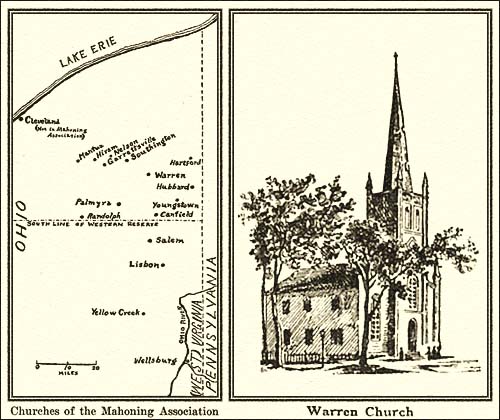
Annotated Reproductions of the
Published Annual Meeting Minutes
1820-1829
Rigdon Revealed | Sidney Rigdon Among the Baptists | texts #1 | texts #2 | texts #3
Redstone Assoc. Minutes | Beaver Assoc. Minutes | Grand River Assoc. Minutes
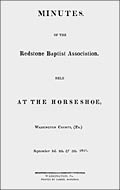
1819 Minutes |
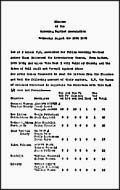
1820 Minutes |
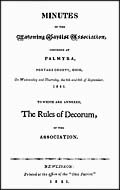
1821 Minutes |
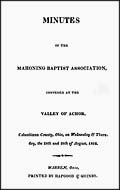
1822 Minutes |
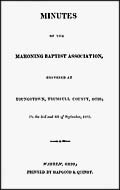
1823 Minutes |
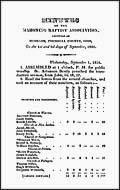
1824 Minutes |
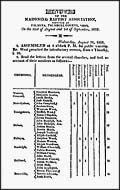
1825 Minutes |
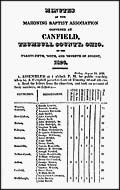
1826 Minutes |
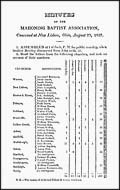
1827 Minutes |
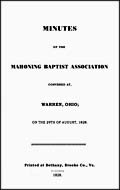
1828 Minutes |
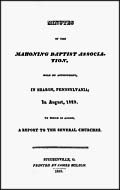
1829 Minutes |
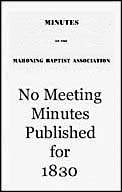
1830 Info. |
|
"A History of the Mahoning Baptist Assoc." by Mary Agnes M. Smith (West Virginia Univ. M.A. thesis, 1943) (Only limited fair-use excerpts presented here) |
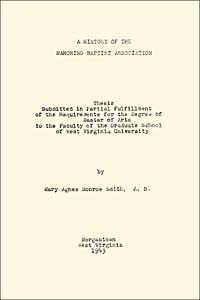
|
|
A HISTORY OF THE MAHONING BAPTIST ASSOCIATION Thesis Submitted in Partial Fulfillment of the Requirements for the Degree of Master of Arts to the Faculty of the Graduate School of West Virginia University by Mary Agnes Monroe Smith, A. B. Morgantown West Virginia 1943 |
This Web-page is still under construction:
OPENING NEW HORIZONS IN MORMON HISTORY